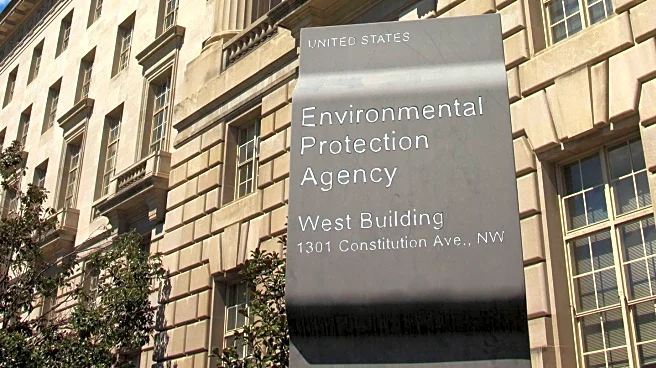What's Happening?
George Tidmarsh, a top drug regulator at the Food and Drug Administration (FDA), resigned following a lawsuit filed by Aurinia Pharmaceuticals. The lawsuit accuses Tidmarsh of making false statements and soliciting
a bribe due to a personal vendetta against the company's board chairman. Tidmarsh was placed on administrative leave after concerns about his conduct were raised, particularly regarding a LinkedIn post criticizing an FDA-approved drug for lupus. The lawsuit alleges Tidmarsh's actions were part of a long-standing conflict with Kevin Tang, the board chairman of Aurinia Pharmaceuticals.
Why It's Important?
This development highlights potential ethical and legal challenges within the FDA, an agency critical to public health and safety. The resignation and lawsuit could impact the FDA's credibility and its processes for drug approval. The situation underscores the importance of transparency and ethical conduct in regulatory bodies, as any perceived conflicts of interest or misconduct can undermine public trust. The case also raises questions about the influence of personal relationships and vendettas in regulatory decisions, which could have broader implications for the pharmaceutical industry and public health policy.
What's Next?
The FDA may face increased scrutiny and calls for reform to ensure ethical standards are upheld. The lawsuit against Tidmarsh could lead to further investigations into his conduct and the FDA's decision-making processes. Stakeholders, including pharmaceutical companies and public health advocates, may push for clearer guidelines and oversight to prevent similar incidents. The outcome of the lawsuit and any subsequent actions by the FDA could influence future regulatory practices and the agency's relationship with the pharmaceutical industry.









